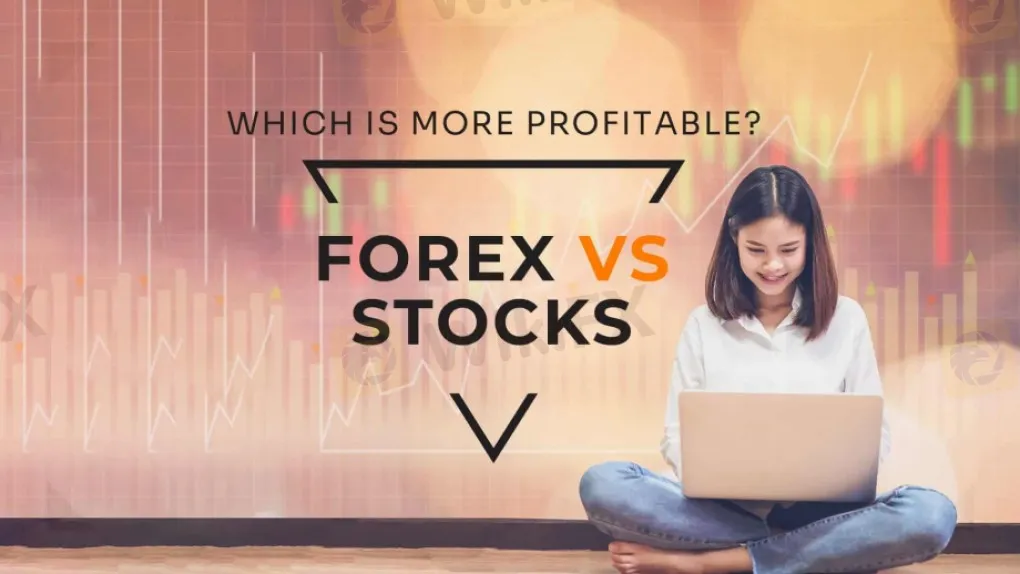Forex vs. Stocks: Key Differences
Forex vs. Stocks: Key Differences
The foreign currency market (“forex”) has a lot in common with the stock market. Both are speculative ways of investing, meaning that they offer higher risks and higher rewards than many other assets. Both markets move faster than many other investments, and like most investments, both have grown with rise of online investment platforms. These products are by no means the same thing, but for all their differences they have a surprising amount of overlap. A financial advisor can help you decide whether forex would be a wise addition to your investment portfolio.To get more news about Forex vs. Stock, you can visit wikifx.com official website.
What Are Stocks?
What this means is that when you buy a stock, you are buying a fraction of ownership of the company which issued it. Buy a share of Google stock and you literally own a piece of Google. That fraction is generally near-infinitesimal. Large companies will typically issue millions, if not billions, of shares of stock. A single share of stock in a company like this will mean that you own one-one billionth of the overall firm.
Put together enough of those equities, however, and you can take a serious stake in the overall company. (In fact, in very simplified terms, this is what a corporate takeover is. If a company has released enough of its value on the open market in the form of publicly traded shares, then you can buy a plurality or even outright majority ownership of the company on the open market.)
A company determines how much of itself to offer in the form of stock. It also chooses how many shares to offer. Together, these two decisions help determine the value of each share. For example, a company may choose to release 1,000 shares of stock worth 20% of the company. In that case, each share of stock would be worth 0.2% of the total firm. The company itself would keep the 80% of ownership that it did not sell.
A stock can come in many different forms. The most common are private vs. public shares. Publicly traded stock is available on a market to consumers at large, meaning anyone who can legally invest in the financial markets. It has no specific restrictions. Privately traded stock is available only to specific investors. Typically a company will trade privately when it has not undergone the rigorous oversight that the SEC requires for a publicly traded firm.
Stocks can be traded in any forum, including in private deals. However, most stocks are sold on dedicated exchanges which list prices, volumes and other critical information.
The main value from stocks is what’s known as “capital gains.” This means that you sell the stock for more than you paid to buy it. In addition stocks can pay dividends, which means that the company pays a share of its corporate earnings to the shareholders that collectively own the firm. Finally, stocks can come with voting and other corporate governance privileges. The exact details of what a stock offers in terms of dividends and governance privileges are determined by the company when it releases the stocks.
A company can even offer multiple different types of stock with different access to dividends and governance. This is typically known as offering “classes” of stock (such as Class A, Class B and so on).
Forex, short for foreign exchanges, is the market for global currency. The currencies of every different global economy trade against each other at different rates. For example, at time of writing the U.S. dollar was worth 0.83 euro. This means that if you give a bank $1, you will receive 0.83 euros in exchange. If you give the bank 1 euro, you will receive $1.21 U.S. These exchange rates change constantly based on changing rates of global demand. For example, if an economy’s exports or tourist sector start booming, their currency will gain value as people look for ways to buy things from that economy. (If you want to visit Thailand, you need baht to spend on food and hotels. The more people who want to go to Thailand, the greater the demand for baht.)
The same is true as investors seek opportunities among the markets of different economies. (If you want to buy London real estate, you will need pounds to make that transaction.) Banks, meanwhile, need reserves of different currencies in order to meet the needs of spenders, savers and investors.
While an in-depth explanation of currency fluctuation is beyond the scope of this article, changing demand among economies is the short answer.
The profits of forex are expressed entirely as capital appreciation (or gains). You hope to ultimately sell your currencies for more than you paid to buy them. This happens when your foreign currency holdings gain value relative to the currency in which you do your banking.
For example, an American investor will do their banking and pay their taxes in U.S. dollars. As a result, this is the currency that defines their trading. When they buy foreign currencies, they’re hoping that the currencies they buy will gain value relative to the dollar.
评论
发表评论